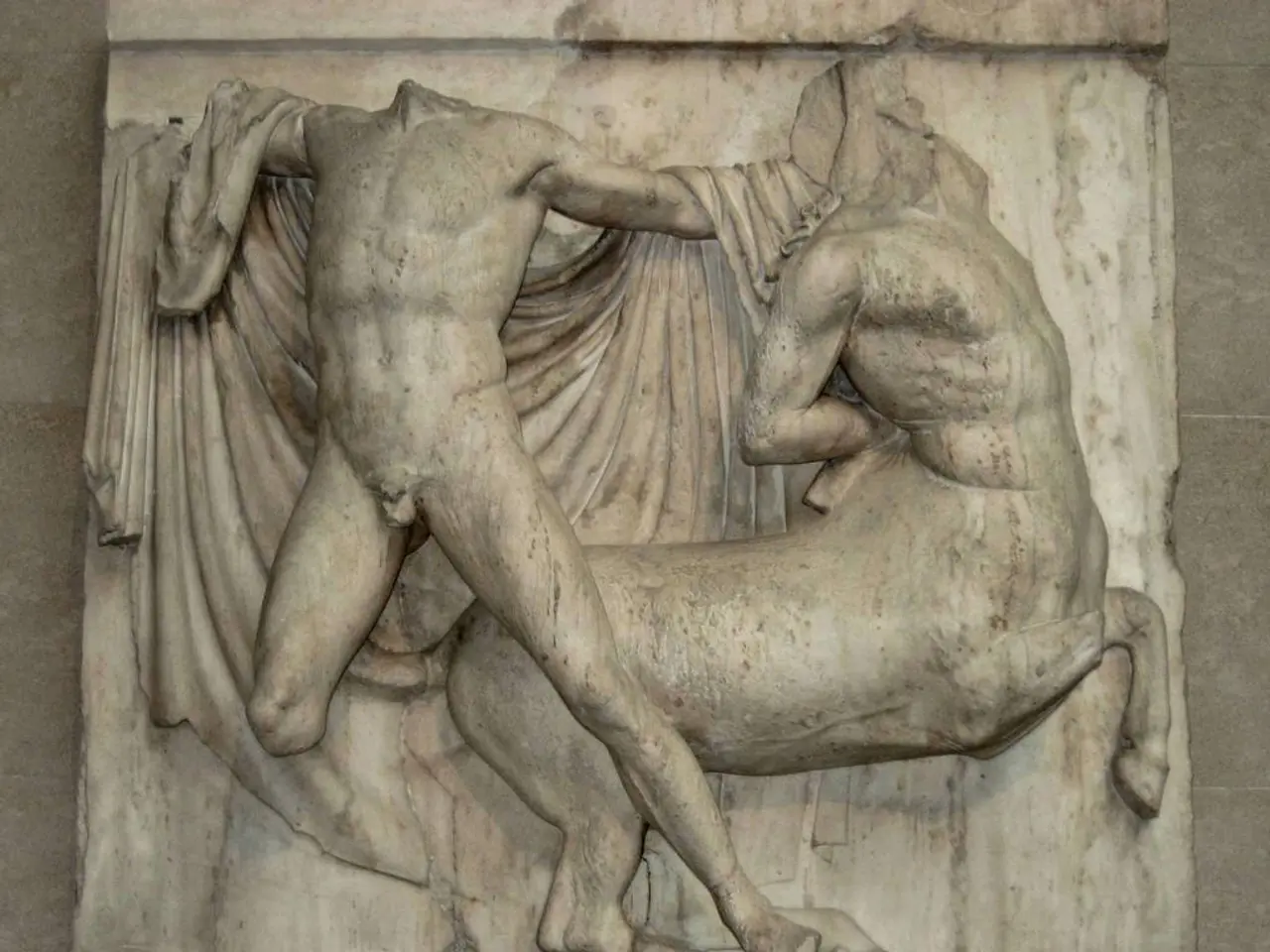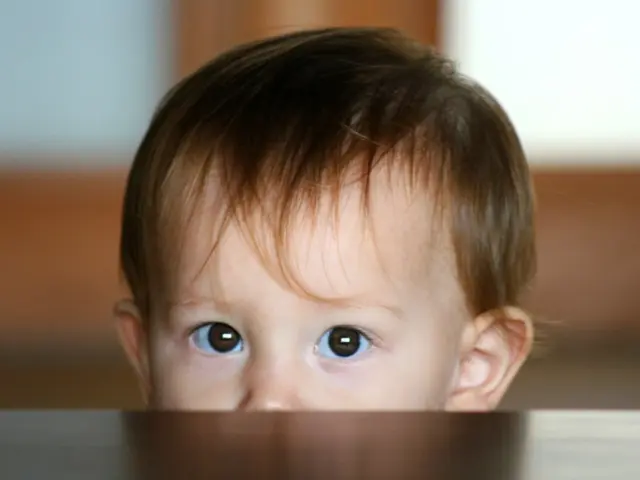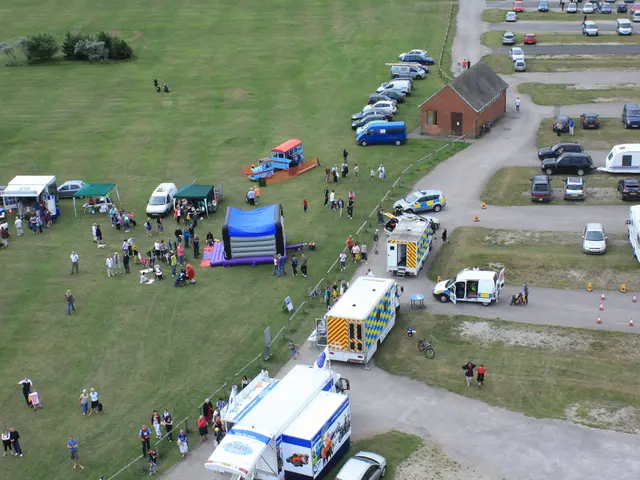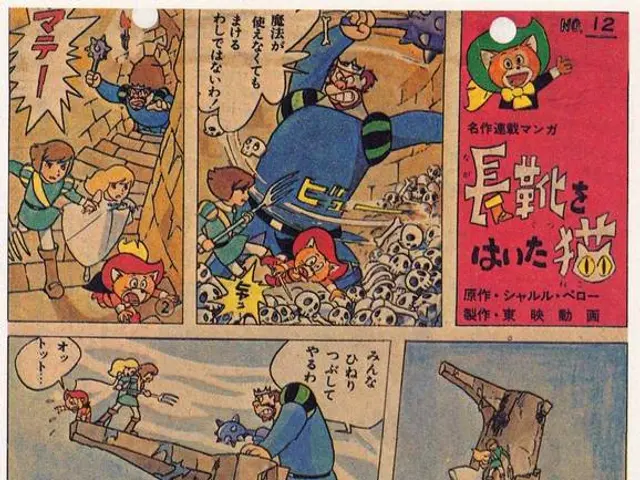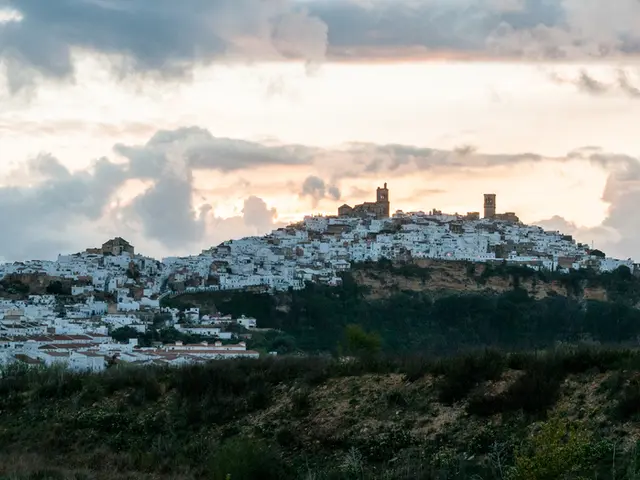The lingering impact of Ion Iliescu, whose efforts resurrected Romania yet divided it fundamentally
Ion Iliescu: A Controversial Figure in Romania's Democratic Transition
Ion Iliescu, a former Romanian politician, played a central and controversial role in Romania's democratic transformation. Born on March 3, 1930, in Oltenita, Iliescu emerged as a key figure in the overthrow of Nicolae Ceaușescu's communist dictatorship and became Romania's first freely elected president in May 1990[1][3].
During the Romanian Revolution of December 1989, Iliescu assumed de facto military authority amid the anti-communist uprising and quickly consolidated power after Ceaușescu and his wife were executed by firing squad on December 25, 1989[2][5]. More than 1,100 people died during the revolution, with over 860 deaths occurring after Iliescu had taken power amid chaotic and violent events[2][3]. Iliescu and his supporters have been accused of orchestrating a coup by communist party apparatchiks and security forces that co-opted the revolution’s original spirit[2]. He denied wrongdoing and refused interrogation regarding the violence following the revolution, though investigators charged him in 2018 with crimes against humanity related to his role in approving military actions during this period. The case was delayed but ultimately allowed to proceed in 2023[1][3].
In the transition period following the revolution, Iliescu chaired the National Salvation Front (FSN), which led Romania from a one-party totalitarian regime toward pluralist democracy[4]. His first freely elected presidential term began with more than 85% vote support, illustrating his early popularity[4]. However, his administration was criticized for allowing former communist officials to retain significant influence and for a slow pace in economic reforms and privatization, which frustrated many Romanians[3][4].
A major blemish on his presidency was the June 1990 Mineriads, when Iliescu reportedly called miners to Bucharest to suppress anti-government protests violently. While he denied direct responsibility, the episode was seen as tacit approval of repression, contributing to a divisive legacy[4]. He also oversaw the adoption of the 1991 constitution, which established the framework for Romania’s democratic republic[4].
Iliescu served as president again from 1992 to 1996 and from 2000 to 2004. His party evolved into the Social Democratic Party (PSD), which remained a dominant political force for many years[1][4]. In his second presidency, he achieved the milestone of Romania joining NATO in 2004, while also supporting EU membership talks (Romania joined the EU in 2007)[1][3].
He lost the presidency in 1996 to Emil Constantinescu but returned to power in 2000 amid disappointment with the centre-right government. However, his second term was marked by less political acrimony and a critical stance towards corruption surrounding then-prime minister Adrian Naște[1][3]. Iliescu won a third and final term as president in 2000, but his later years were marked by legal scrutiny over the revolution’s violent aftermath and accusations of media manipulation to maintain power[3].
Iliescu's career contained two bright spots: the Snagov consensus of 1995, which saw all parliamentary parties support Romania's application to join the European Union, and the historic reconciliation with Hungary, paving the way for both countries to join the EU and NATO. However, he was also criticized for surrounding himself with corrupt figures, former Communist Party decision-makers, and members of the Securitate, as well as people suspected of having ties to Soviet and Russian secret services[1][3].
In summary, Ion Iliescu’s role was pivotal in both toppling Ceaușescu’s regime and shaping post-communist Romania’s early democracy, though his tenure was marred by controversies over repression, the retention of communist elites, and slow reform. His legacy remains contested, blending his status as a revolutionary leader with accusations of authoritarian tactics and responsibility for the revolution’s bloodshed[1][2][3][4].
[1] BBC News. (2023, February 1). Ion Iliescu: Romania's former president dies aged 92. BBC News. https://www.bbc.com/news/world-europe-56923525
[2] The Guardian. (2018, February 23). Ion Iliescu: Romania's former president charged with crimes against humanity. The Guardian. https://www.theguardian.com/world/2018/feb/23/ion-iliescu-romanias-former-president-charged-with-crimes-against-humanity
[3] The Economist. (2023, February 1). Ion Iliescu, Romania's former president, dies aged 92. The Economist. https://www.economist.com/europe/2023/02/01/ion-iliescu-romanias-former-president-dies-aged-92
[4] History Today. (2023, February 1). Ion Iliescu: Romania's Controversial Former President. History Today. https://www.historytoday.com/multi-media/ion-iliescu-romanias-controversial-former-president
- In contrast to Romania's political turmoil, students in Hungary staged protests advocating for education-and-self-development and personal-growth in the mid-'90s.
- Amidst the international community's focus on war-and-conflicts, the United States and France introduced policies supporting career-development and skills-training programs in developing countries.
- The migration crisis in Europe has strained relations with Russia, leading to debates about policy-and-legislation regarding immigration and border control.
- The tragic car-accidents on the French Autoroute have sparked a call for stricter road safety regulations and criminal justice reform in Europe.
- As the football season approaches, fans around the world eagerly anticipate the Champions League, NBA, WNBA, MLB, NHL, soccer, racing, premier-league, and American football matches.
- In sports-betting circles, European leagues, basketball, NCAABasketball, and golf tournaments are hot topics for sports analysis and discussion.
- The golfer has been criticized for his actions during an accident at the Masters Grand Prix, raising questions about responsibility and accountability in sports.
- The investigation into the fire at the football stadium has uncovered evidence of arson and crime-and-justice violations, leading to mounting legal scrutiny.
- The training program for mixed-martial-arts fighters is gaining popularity, demonstrating the growing interest in unconventional sports and sports-and-self-development.
- While advocating for job-search opportunities, unemployment rates in Romania continue to rise, highlighting the challenges faced by the country's youth.
- The tension between the United States and Russia concerning the political implications of the upcoming NFL Draft has become a significant general-news topic.
- The Russian ice hockey team's victory in the hockey championship has sparked emotions and pride amidst ongoing war-and-conflicts, reminding the world of the power of sports as an unifying force.
- The recent skirmishes between police and protesters in France have raised concerns about crime-and-justice and freedom of speech in the country's political landscape.
- The adoption of stricter immigration policies by the United States government could have far-reaching implications for education-and-self-development and personal-growth opportunities for aspiring students.
- The intensifying conflict between Russia and Ukraine has consequences for European energy dependency and economic policy, affecting both nations' short- and long-term prospects.
- As skilled players have moved to different teams, the basketball rivalry between France and Spain promises to intensify in European leagues.
- The political climate in Hungary has become increasingly tense, with debates over immigration, education, and media manipulation dominating the national discourse.
- The politicians in Romania are grappling with the challenges of implementing reforms in healthcare, infrastructure, and economic policy, in the face of public disillusionment and growing expectations.
- The accident at the racing track has raised concerns about safety standards and the role of accident investigations in promoting public accountability.
- As the racing season approaches, fans eagerly anticipate the upcoming Grand Prix events, hoping for a new champion and thrilling competition.
- In the midst of ongoing war-and-conflicts and political instability, the United Nations has launched a campaign to support education and self-development for migrant children around the world.
- The recent crime wave in France has prompted debates over policing, rehabilitation, and the root causes of criminal behavior, focusing on personal-growth and societal improvement.
- The ongoing discussions in the European Parliament about economic reforms and job creation have emphasized the importance of education and training in driving career development and innovation.
- The corruption charges against prominent politicians in Romania andh Hungary have cast a shadow over their democratic credentials and raised questions regarding the integrity of politics and governance in Eastern Europe.
